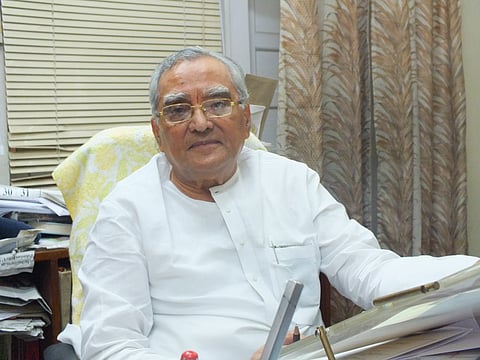
- News
- Columns
- Interviews
- Law Firms
- Apprentice Lawyer
- Legal Jobs
- हिंदी
- ಕನ್ನಡ

In the final interview of lawyers in Hyderabad, Bar & Bench speaks to Senior Advocate Pratap Reddy. In this interview, Reddy discusses how he ended up in the legal profession, his advice to junior lawyers and why he thinks the Supreme Court ought to rethink the way it is currently functioning.